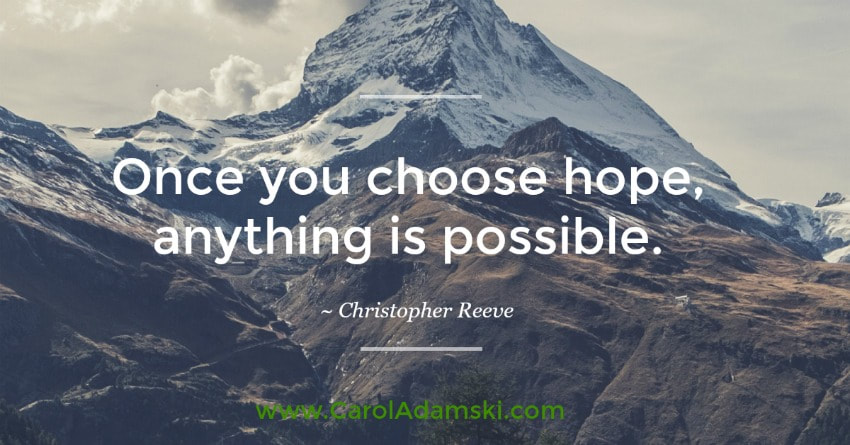I don’t want to get my hopes up.
Our rationale for not being hopeful is that we are being realistic and rather than setting ourselves up for disappointment when our hopes fall short, we instead have steeled ourselves against the worst (and in our mind, probably the more likely scenario).
According to psychotherapist Katherine Schafler, we validate this ‘emotional restriction as mature and disciplined.’ But what this avoidance of hope is really doing is dampening our decision-making, perspective on life and ability to creatively problem solve.
A quote by Zig Ziglar conveys how important hope is: “The door to a balanced success swings wide open on the hinges of hope and encouragement.”
In a 6-year study, researcher Joseph Ciarrochi and his team discovered that the more hope a person has, the more likely they are to succeed, especially during periods of change. Hope was indicative of emotional flexibility and the ability to look for and implement creative solutions to life’s challenges. For those with a hopeful outlook, “When the world says, Give up, hope whispers, Try one more time.”
Having a hopeful outlook offers us both the will and the means to reach a goal.
Researcher and author of Making Hope Happen, Shane Lopez pinpoints three fundamental ways to build hope to accomplish more in life:
- Engage in “futurecasting” – envision a specific future goal in a way that makes it come alive for you.
- Work towards your goal – create pathways that will lead you towards your goal.
- Plan for contingencies – Hopeful people tend to see multiple solutions to a problem. Have many ways to overcome obstacles.
Hope is powerful. It can boost our success levels in all areas of life, including our education, career, family, relationships and even our health and wellbeing.
“Once you choose hope, anything is possible.” ~Christopher Reeve

 RSS Feed
RSS Feed